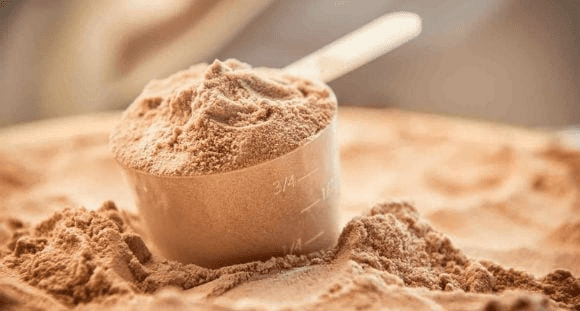Protein is not the body’s go-to energy source; it’s glucose from carbohydrates. But if you need sustained energy throughout the day, and especially after an intense workout, protein is your best bet.
So how does protein give you the energy you need compared to carbohydrates? Read on to learn more.

Protein’s Role in the Body
Protein is made up of more than 20 amino acids, organic compounds that are also referred to as the building blocks of life. Protein can be found in virtually every part of the body – from the skin and hair to the muscles and bones. Out of the 20 amino acids that our body needs to function, nine are classified as essential amino acids and these are the same amino acids that the body cannot make on its own – they can only be obtained through food.
The most important functions of protein in the body include the following:
- Growth and Maintenance of Tissues
Your body breaks down protein for the regular maintenance of the body, such as for hair growth and skin turnover. In times of illness, when recovering from an injury, or during pregnancy, the body usually requires more protein than it can produce.
- Provide Structure
Fibrous proteins provide structure to cells and tissues. Keratin is the structural protein found in hair and nails. Collagen is the structural protein that makes up skin, bones, tendons, and ligaments. Elastin provides elasticity to various parts of the body so they can contract, stretch, and return to their original form, such as arteries, lungs, and uterus.
- Support Immune Health
Proteins are key to the formation of antibodies, which are critical to the body’s defense system.
- Facilitate Biochemical Reactions
A lot of bodily functions, such as digestion, muscle contractions, and blood clotting, require enzymes, which are also essentially made up of proteins.
- Facilitate Communication Inside the Body
Some hormones are made up of proteins and act as chemical messengers. Examples include insulin, which signals cellular uptake of glucose; glucagon, which signals glucose breakdown in the liver; and human growth hormone (hGH), which signals the growth of various tissues, such as bone tissue.
- Facilitate Transport of Nutrients, Oxygen, Blood Sugar, and Cholesterol
- Maintains pH Levels and Fluid Balance
Protein for Energy
A gram of protein contains four calories, which is the same amount you can derive from a gram of carbohydrate; in comparison, fats contain nine calories per gram.
The body’s preferred source of calories for fuel is glucose from carbohydrates; when glucose is not readily available, the body starts burning fats. The body maintains reserves of both glucose and fats for later use. There are no similar protein reserves because the body normally makes and breaks down protein whenever it’s needed.
Carbohydrates and fats are more efficiently metabolized by the body for fuel, whereas protein takes longer to break down for the same purpose. Because protein plays many valuable roles throughout the body, it is the body’s last choice for fuel. This is why a starved body – such as what happens during prolonged fasting – only breaks down muscle tissues for fuel as a last resort. Under normal circumstances, very little of the body’s energy needs come from protein.
Supplementing your fuel consumption with protein becomes important when calorie intake is low and/or you engage in an intense physical activity. Because protein is metabolized much more slowly by the body, it provides a steady and longer source of energy. And as the body has no stores of extra protein, you have to increase your protein intake in order to provide it with an alternative source of energy.
If you need long-lasting stamina, protein from foods is also the ideal choice for fuel. Compared to glucose, protein does not cause a spike in sugar levels and the inevitable crash, which also leads to a crash in energy levels. Combined with its slow breakdown, protein’s ability to keep insulin levels stable ensures the sustained energy level you need.
During exercise or any sport activity, the muscles also need more amino acids to repair themselves and become stronger and/or bigger. This is why serious gym-goers and athletes load up on protein after their workout. The protein does not only provide the amino acids needed by the muscles, but also the energy required for stamina.
Maximizing Protein for Energy
Metabolizing protein for energy uses up a lot of water, so it’s important that you hydrate adequately when you’re loading up on protein for this purpose. Lack of water intake on a high-protein diet can lead to dehydration and sluggishness.
Whether you’re on a low-carb diet or eating carbs for energy, it is best to pair your carbs with protein so you can have better blood-sugar-level control and a sustained source of energy throughout the day.
Great sources of protein include lean meats, fish, poultry, eggs, beans, nuts, and seeds. A well-balanced diet that will also provide you with sustained energy the whole day includes a healthy carbohydrate or fat and quality protein. Start the day right by incorporating protein-rich foods into your breakfast – you’ll avoid a sugar crash and you’ll feel energized longer.
Nutritionists recommend consuming half a gram of protein per pound of body weight. Pregnant or nursing women, the elderly, and athletes usually require more protein in their diet.
